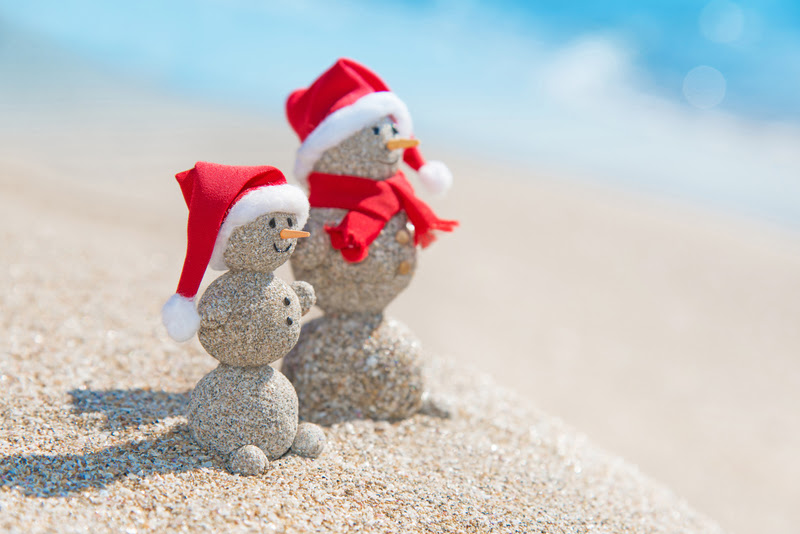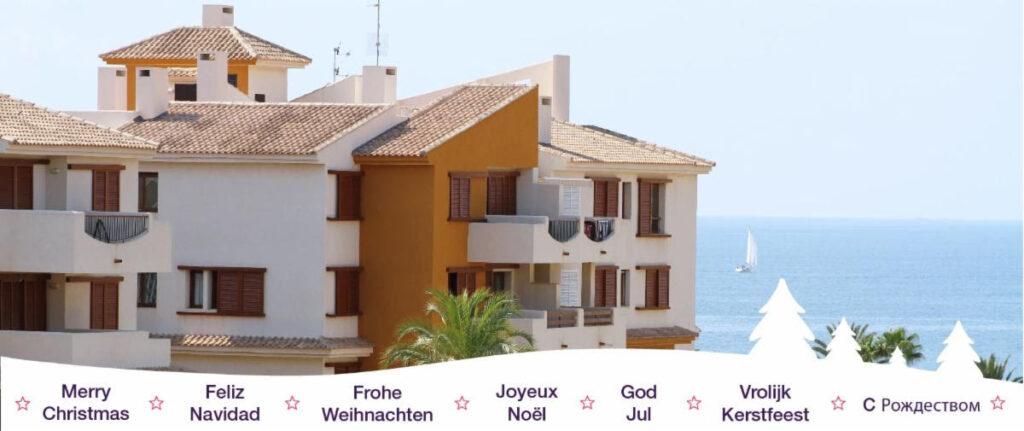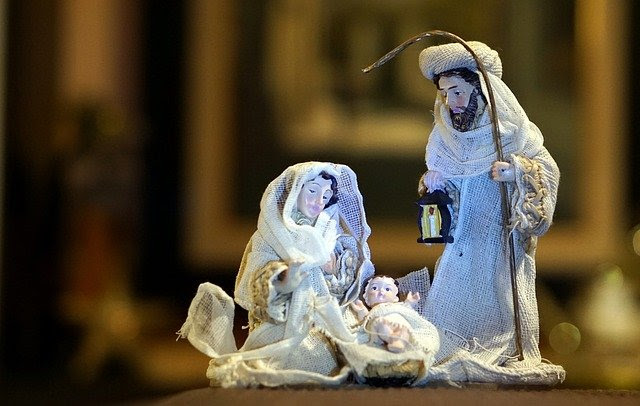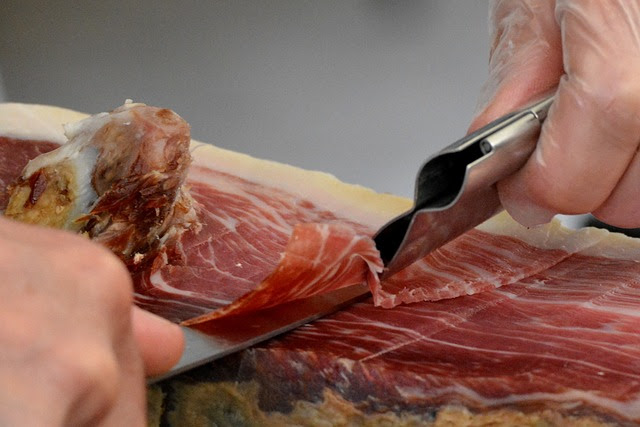
| There are plenty of reasons to spend Christmas in Spain. The warm temperatures in the south of the county are certainly appealing, while all that sunshine provides a much-needed vitamin D boost. Winter is also the ideal time to travel to and around Spain, with the country being far less crowded than during the hectic summer months. However, according to leading Spanish home builder Taylor Wimpey España, enjoying Christmas in Spain is about far more than simply buying a second home there – it’s about diving into local traditions and flavours all the way from mid-December to Epiphany on 6 January. (Incidentally, those looking to include a second home in their Christmas shopping this year would do well to check out the key-ready, beachfront apartments at La Recoleta III in Punta Prima on the Costa Blanca. Prices start from €235,000 plus VAT.) “Christmas is a wonderful time of year to spend in Spain. It’s a season packed with family values, local traditions, exquisite food and the sounds of children singing villancicos – Christmas carols – as well as key religious services. Spanish Christmas markets are also not to be missed.” Marc Pritchard, Sales and Marketing Director of Taylor Wimpey España |

For Britons experiencing their first Christmas in Spain, there are some key differences to take into account. First and foremost, it should be noted that the big man in red won’t be putting in an appearance. Instead, it is the Three Kings who deliver gifts for children in Spain. They do so on Epiphany (6 January), following a big procession in each town on 5 January. During the procession, the Three Kings and their helpers throw sweets into the crowd, with the main present-opening part of the festive season taking place the following day. As in England, though, only the good children receive gifts from the Three Kings – those who don’t behave are apt to receive a lump of coal instead. Not all Spanish homes have Christmas trees, either, though their presence in Spain is increasing year-on-year. Instead, the central focus of decoration in the home is the Belén – a nativity scene made up of tiny figures, which include Mary, Joseph and baby Jesus in the manger, along with a whole range of other figures. |

Spanish families often build up their collection of Belén figures over years, while schools and offices create their own impressive scenes. Christmas markets are an excellent place to pick these figures up and are well worth visiting as darkness falls, when stunning light displays bathe shoppers in their festive glow. They are also an excellent place to shop for Christmas sweets and biscuits, including deliciously nougat-y turrón, crumbly mantecados biscuits, marzipan sweets and sugar-covered polvorones. “Each region of Spain has its own particular Christmas traditions. These are particularly strong in Andalusia, where they form a key part of the festive season, along with traditions that are shared across the whole of Spain.” Marc Pritchard, Sales and Marketing Director of Taylor Wimpey España One country-wide tradition is the Spanish Christmas lottery, the draw for which takes place on 22 December. This marks the start of the Christmas festivities for many Spaniards. Christmas lottery tickets are expensive, so players often buy 1/10th tickets, which cost €20. The lottery has thousands of prizes, as well as the main prize, known as El Gordo (‘the fat one’). A second draw takes place on 6 January, marking the end of the holiday season. |

Of course, Christmas in Spain also features plenty of feasting, with delicious meals washed down with cava and local wines. Christmas Eve, Christmas Day and New Year’s Eve are all major occasions, with foods including pata negra (the best Iberian ham on the planet), delicious seafood creations, speciality cheeses and usually roast lamb or pork. Britons spending Christmas in Spain will also need one final thing – 12 grapes. Eaten for good luck and to ward off evil spirits, one grape is eaten with each chime of the clock at midnight as New Year’s Eve becomes New Year’s Day. “Christmas in any country is special when you embrace the local culture and traditions, and this is certainly true here in Spain. It’s lovely to think that all those families who have bought second homes in Spain with us over the years have had the opportunity to be part of the Spanish Christmas season and to make these traditions part of their annual celebrations.” Marc Pritchard, Sales and Marketing Director of Taylor Wimpey España |

For more information, please contact Taylor Wimpey España on 08000 121 020 or visit https://www.taylorwimpeyspain.com/. If you reside outside of the UK, you will need to call 00 34 971 706 972. |

